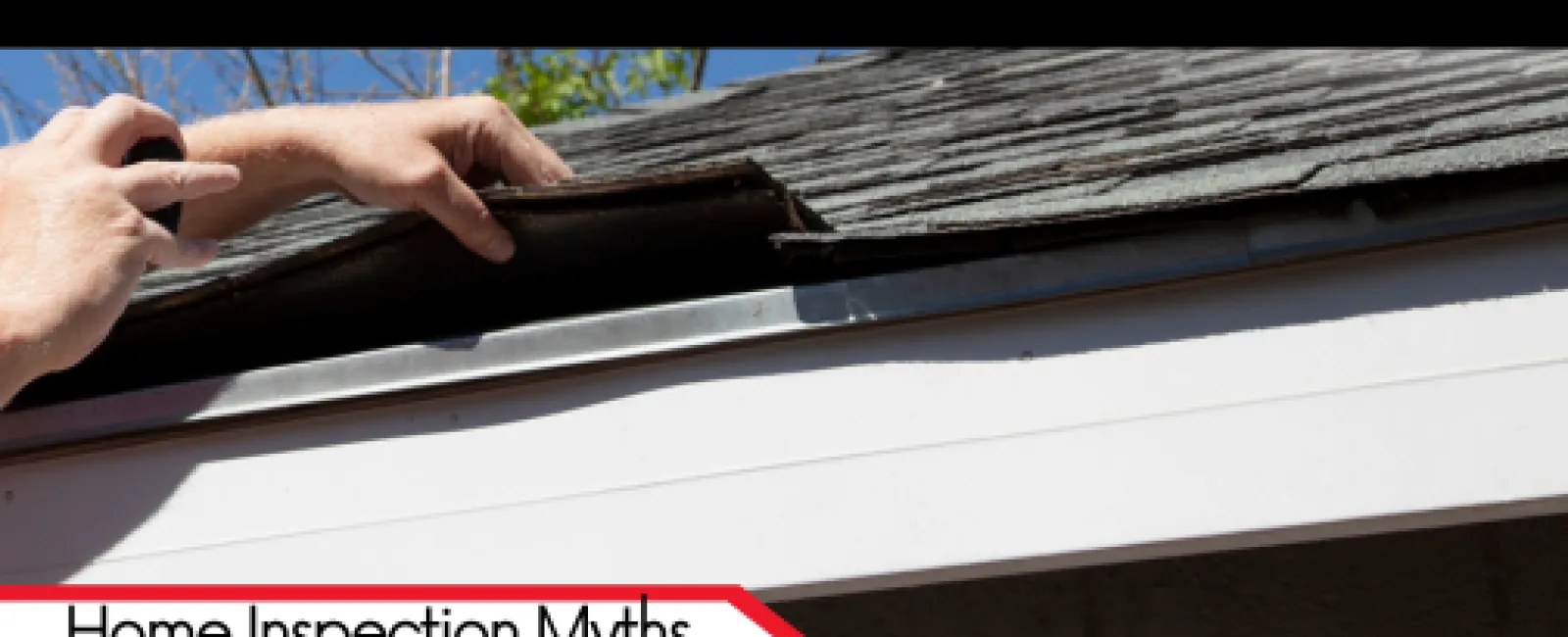For homeowners and homebuyers across the Carolinas—especially throughout the Triad and Triangle Areas—the real estate process is filled with crucial decisions that can significantly affect long-term financial well-being. One of the most important steps in this process is the home inspection, yet many residents still rely on outdated or inaccurate assumptions about what an inspection does and doesn't cover. Misunderstandings about Carolina home inspections often cause buyers to overlook major risks, particularly foundation-related concerns that are common in regions with heavy rainfall, clay-rich soils, and seasonal temperature shifts. These myths can result in expensive repairs, unexpected safety hazards, and negotiation setbacks that could have been avoided with accurate information and expert guidance.
In rapidly growing markets such as Charlotte, Greensboro, and Raleigh, it's more critical than ever for homeowners to understand how inspections truly work. Professional companies like LunsPro Inspection Group, which provide comprehensive Raleigh Residential and Commercial Inspections and serve communities throughout the Carolinas, offer expert insights into hidden structural issues that surface only with a trained eye. Many homes in our region—whether historic properties in Greensboro, suburban builds near Raleigh, or newer communities around Charlotte—face foundation vulnerabilities due to moisture, expansive soils, and natural settling. When inspection myths are allowed to guide decision-making, buyers and sellers risk jeopardizing transactions, undervaluing properties, or facing large repair bills down the line. This article exposes the most common myths and explains how solid, factual understanding can protect your investment.
Myth #1: An Appraisal Is Just as Good as an Inspection
One of the most damaging myths in residential real estate is the belief that the bank's appraisal doubles as a home inspection. These two evaluations serve entirely different purposes. An appraisal determines market value; a home inspection evaluates condition and safety. Foundation cracks, moisture intrusion, failing support beams, and grading issues pose serious risks but do not impact an appraiser's assessment unless they visibly affect market value.
In the Carolinas—where soil movement and seasonal moisture changes are known to cause foundation shifts—confusing an appraisal with a home inspection can be financially devastating. A structurally compromised home may still appraise well if the neighborhood is in demand, but that does nothing to protect buyers from unexpected repair costs. Expert inspectors at LunsPro Inspection Group routinely find foundation concerns during Carolina home inspections in homes that recently appraised at or above asking price.
Myth #2: New Construction Homes Don't Need Inspections
Many buyers assume that a newly built home in areas such as Charlotte or Raleigh is flawless simply because it's brand new. Unfortunately, construction timelines are tight, subcontractors change frequently, and not all workmanship meets the same standard. Builders' municipal inspections confirm code compliance, not long-term safety or foundation stability.
New construction homes throughout the Triad and Triangle Areas are not immune to grading problems, poor soil compaction, improper drainage, or early settlement cracks. These issues, if undetected, can compromise foundation integrity within just a few years. That's why many buyers request phase inspections—from the foundation pour to pre-drywall to final walk-through—performed by a third-party company like LunsPro Inspection Group, known for thorough Greensboro and Raleigh Residential and Commercial Inspections. Skipping these evaluations can leave buyers responsible for builder-related issues discovered only after warranties expire.
Myth #3: Sellers Are Required to Disclose All Known Issues
Sellers are legally required to disclose known defects, but they are not required to investigate hidden ones. Many homeowners have no idea that water is pooling beneath their crawlspace or that slow, gradual foundation settling is creating structural imbalances. Others may notice symptoms—like doors that stick or hairline cracks—but assume they're harmless.
In regions like Greensboro or Charlotte, where soil expansion and contraction are common, subtle signs often reveal deeper structural concerns. A seller may assume a minor crack is cosmetic, but an inspector may determine that it signals foundation movement. Relying solely on seller disclosures can leave buyers exposed to serious risks. This is why Carolina home inspections remain essential, even in transactions involving honest and well-intentioned sellers.
Myth #4: All Inspectors Provide the Same Level of Quality
Another costly misconception is that every home inspector has the same training, equipment, and attention to detail. That is far from reality. North Carolina has specific standards for home inspectors, but expertise still varies widely between companies. Advanced inspection tools—such as moisture meters, foundation levels, thermal imaging cameras, and drones—are not used by all inspectors, yet they are crucial for identifying hidden issues.
Companies like LunsPro Inspection Group go far beyond minimum requirements. Their teams perform detailed evaluations, especially in foundation-prone areas of the Carolinas, and their Charlotte, Greensboro, and Raleigh Residential and Commercial Inspections are known for catching subtle signs that others might miss. Choosing an undertrained or minimally equipped inspector can result in structural problems being overlooked, which later become expensive repairs.
Myth #5: If a Home Looks Great, It Doesn't Need an Inspection
Curb appeal and interior aesthetics have little to do with structural soundness. Many homes in the Triad and Triangle Areas have been renovated or cosmetically updated but still suffer from hidden issues, including:
-
Moisture intrusion behind finished walls
-
Foundation settlement beneath flooring
-
Crawlspace rot and fungus
-
Improperly sloped grading causing water pooling
-
Support beams weakened by termites or moisture
The humid Carolina climate accelerates many of these issues, especially in crawlspace homes. A beautiful home in Raleigh or Charlotte may conceal foundation shifts, sagging joists, or inadequate drainage—all of which can cost thousands if missed during the inspection process. A trained inspector evaluates the entire property—not just what looks good on the surface.
Myth #6: Inspectors Can Predict Exactly When a System Will Fail
While experienced inspectors can identify warning signs, no one can predict with perfect accuracy when a foundation will require stabilization or when an HVAC system will fail. Instead, inspectors assess condition, age, and performance to provide estimated life expectancy and risk levels.
For buyers and sellers in the Carolinas, this information is invaluable. For example, an inspector may note that a foundation crack is currently stable but needs monitoring due to soil conditions common in Charlotte or Greensboro. LunsPro Inspection Group provides detailed documentation to help homeowners understand potential future risks, budget for repairs, and make informed decisions.
Myth #7: Small Issues Can Be Ignored
Minor issues often signal larger, more expensive problems—especially when they involve moisture or foundation movement. A small crack may indicate significant soil settlement. A slight floor slope could reveal deteriorating support beams. Even peeling paint near a baseboard might point to water intrusion.
In the Carolinas, ignoring minor moisture concerns can quickly lead to:
-
Mold growth
-
Wood rot
-
Termite infestation
-
Foundation instability
-
Crawlspace decay
The region's climate makes fast deterioration common, so even "small issues" should be evaluated by trained professionals. Carolina home inspections are designed to catch these problems early.
Myth #8: Home Inspections Slow Down the Closing Process
Some buyers worry that scheduling an inspection will delay their closing timeline, especially in competitive markets like Charlotte and Raleigh. In reality, reputable companies can typically schedule and complete inspections within a few days, with reports delivered within 24 hours.
Skipping an inspection to save time may lead to costly delays later, such as:
-
Structural repairs
-
Insurance claim complications
-
Renegotiations after unexpected findings
-
Legal disputes
In markets across the Triad and Triangle Areas, a quick but thorough inspection from a company like LunsPro Inspection Group helps keep transactions on track while safeguarding your investment.
Myth #9: The Seller Must Fix Every Issue Found
Inspection findings are negotiable—not mandatory repair orders. In North Carolina real estate transactions, sellers are not required to fix every issue uncovered during the inspection. Instead, buyers and sellers negotiate solutions, which may include:
-
Credits toward closing costs
-
Price reductions
-
Repair agreements
-
"As-is" acceptance
A detailed inspection report benefits both parties. For sellers, addressing major foundation or moisture issues proactively can help maintain buyer confidence. For buyers, factual documentation strengthens negotiation power. Clear findings from Greensboro and Raleigh Residential and Commercial Inspections ensure transparency and fairness during negotiations.
Myth #10: If a Home Passed an Inspection Years Ago, It's Still Fine Today
Homes in the Carolinas—especially older properties—experience continuous environmental stress. Expansive clay soils, heavy rainfall, freeze-thaw cycles, and humidity all contribute to ongoing movement and deterioration. A home that passed inspection five or ten years ago may now have significant foundation changes, even if it appears well maintained.
Regular Carolina home inspections allow homeowners to detect early signs of structural or moisture-related issues before they escalate. This is particularly important before listing a property for sale. Buyers are more confident purchasing a home backed by a recent inspection, while sellers avoid surprises that could derail negotiations.
Home inspection myths have long influenced real estate decisions across Charlotte, Greensboro, Raleigh, and the broader Triad and Triangle Areas, often leading buyers and sellers to make assumptions that jeopardize their financial security. Misconceptions about new construction, minor issues, seller disclosures, and the role of appraisals frequently cause homeowners to overlook foundation problems—a major concern in many parts of the Carolinas. By separating myth from reality and relying on factual, expert guidance, homeowners can protect themselves from unexpected expenses and structural risks that might otherwise remain hidden until it's too late.
Whether you're buying, selling, or simply maintaining your property, a high-quality inspection is one of the smartest investments you can make. Companies like LunsPro Inspection Group, known for their detailed Charlotte, Greensboro, and Raleigh Residential and Commercial Inspections, offer homeowners a clear understanding of their property's condition and help prevent small issues from becoming costly repairs. As soil movement, moisture, and age continue to affect homes throughout the Carolinas, accurate inspections play a vital role in preserving long-term home value and ensuring safety. Trusting experienced professionals and rejecting common myths will empower you to make informed decisions and protect your home—the foundation of your financial future.

